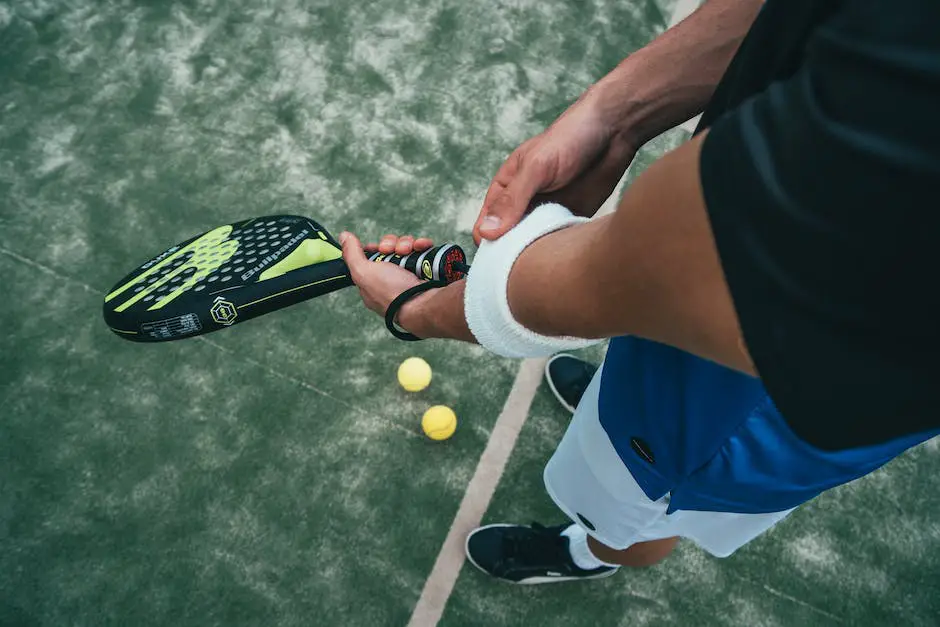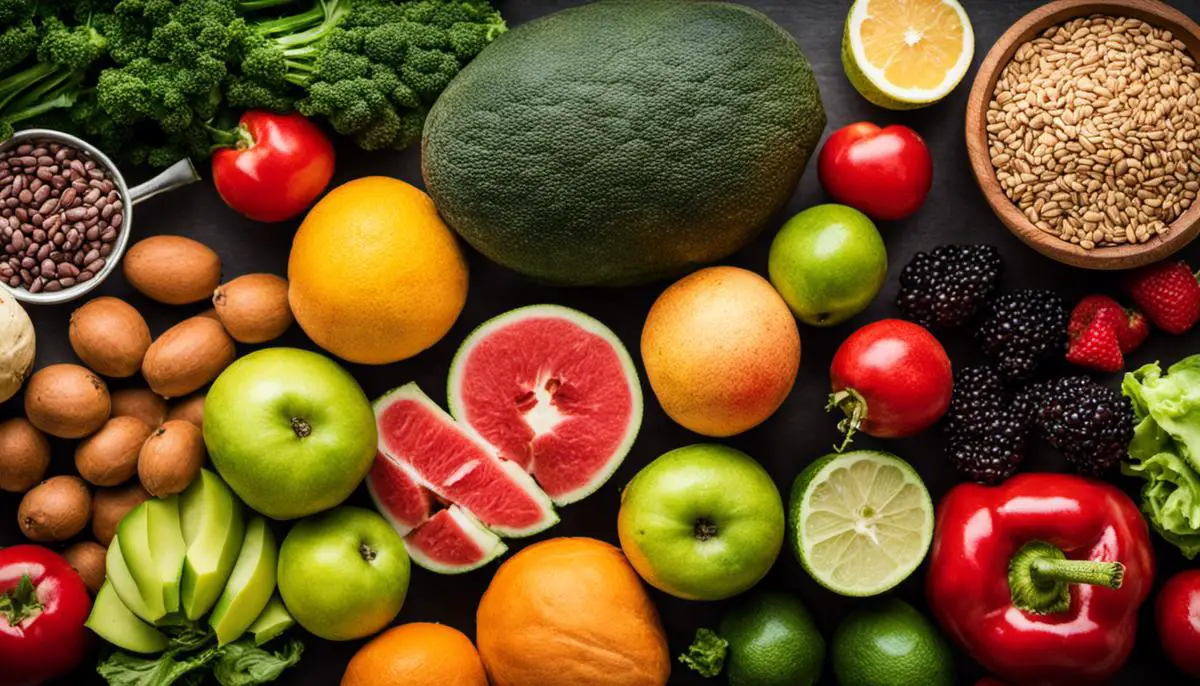Amplifying your prowess on the tennis court doesn’t solely stem from rigorous training but also hinges prominently on the nutrition you imbibe. It is essential to understand the science of pre-game nutrition and its profound impact on your strength, performance, and endurance during a tennis match. This comprehensive guide will delve into the realm of critical nutrients for athletes and the physiological processes triggered by pre-match meals. Moreover, an in-depth exploration of suitable foods, apt meal timings, and digestion schedules will further reinforce your understanding, assisting you in devising an effective nutritive strategy tailored for tennis.
Understanding the Importance of Pre-Game Nutrition
Understanding the Importance of Pre-Game Nutrition
Your performance in a tennis match is heavily influenced by your dietary intake. Nutrition plays a crucial role in not only boosting your strength and energy but also fostering your endurance. Eating the right food types in appropriate quantities before a game feeds your muscles, fuels your brain, and promotes the overall efficiency of your gameplay.
Essential Nutrients for Athletes
Athletes should focus on consuming a balanced diet rich in carbohydrates, proteins, and healthy fats. Carbohydrates preserve your muscle mass and provide you with the energy needed to sustain rigorous activity. Consider consuming foods like whole-grain pasta, rice, and fruits for optimal carbohydrate intake.
Proteins play a critical role in building and repairing muscles after a strenuous effort. Animal-based sources such as lean meats, fish, and eggs, as well as plant-based sources such as legumes and nuts, are excellent sources of protein.
Healthy fats, while providing a concentrated source of energy, are important for maintaining your overall health. Foods rich in healthy fats include avocados, nuts, seeds, and oily fish. Don’t forget to include fiber-rich foods and hydrate well for optimal digestion and absorption of these nutrients.
What Happens When You Eat Before Playing?
Consuming a meal before playing tennis, specifically one rich in carbohydrates, primes your body for peak performance. Your body digests the carbohydrates from the meal, converting them into glucose. This glucose then enters the bloodstream and is taken up by your muscles, where it’s stored as glycogen – ready for instant use in providing energy during the game.
A pre-game meal also helps to stabilize blood sugar levels, preventing the ‘crash’ often associated with low blood sugar, such as dizziness and fatigue. Consuming a well-balanced meal before a game ensures you have steady energy throughout.
Timing Your Meals Before Tennis
As a rule of thumb, aim to eat a larger meal comprising of complex carbohydrates, lean protein, and healthy fats 3 to 4 hours before the game. Then, 30 minutes to an hour before the game, opt for a light snack, such as a banana or a small handful of nuts, to give you a quick, easily accessible energy source. Also, ensure you are consistently hydrating to compensate for the water you lose through sweating during the game.
Understanding pre-game nutrition and effectively timing your meals before a tennis match can significantly enhance your performance and endurance. Your diet is an integral part of your training regimen and should never be overlooked or underestimated.

Identifying What to Eat and When
Identifying What to Eat Before Tennis
Before a game of tennis, you want to fuel your body with the right kinds of foods to sustain endurance and enhance performance. Complex carbohydrates such as whole grain bread, brown rice, oatmeal, and sweet potatoes, are excellent choices. These foods provide a slow release of energy throughout your match. Additionally, you want to include a form of lean protein such as eggs, chicken breast, or Greek yogurt, which will aid in muscle repair and recovery. Lastly, you should be consuming enough vegetables or fruits to supply your body with essential vitamins and minerals.
Meal Timing and Digestion
How soon you decide to eat before your tennis match largely depends on the size and type of meal you are planning. If you have a large meal consisting of complex carbohydrates, lean protein, and vegetables, you should aim to eat about three to four hours before your match. This allowance will give your body adequate time to digest the food and convert it into energy.
On the other hand, if you decide on a smaller meal or snack such as a banana with peanut butter or a yogurt with some fresh berries, around one to two hours should be sufficient. It is vital to keep in mind that everyone’s body digests food at different rates, so you need to identify, through trial and error, what works best for you.
Portion Size and Frequency of Meal
The portion size for your pre-tennis meal should be enough to satisfy your hunger, but not too much that you feel overly full, sluggish, or have an upset stomach. Typically a meal containing half a plate of complex carbohydrates, a quarter plate of lean protein, and a quarter plate of vegetables or a piece of fruit is a good rule of thumb.
However, if you have a long tournament day ahead, it guarantees multiple matches. In such situations, you should aim to snack regularly in between matches to maintain high energy levels. A small snack comprising a simple carbohydrate source, like banana or an energy bar, would be appropriate. These foods are digested more quickly and can provide a rapid energy boost when needed.
Remember, proper hydration is crucial in any sport. Thus, drinking water throughout the day, not just during your match, will help you stay hydrated and maintain your performance.

Creating a Personalized Diet Plan
Understanding Your Body Needs for Tennis
Tennis is a high-intensity sport that demands a lot of energy and stamina. As such, your diet plan should be high in complex carbohydrates, moderate in protein, and low in fat. Always consider your body weight, intensity, duration of the game, and your recovery needs.
Creating Your Personalized Diet Plan
Start by calculating your daily caloric needs considering your weight, height, age, and physical activity level. The majority of these calories should come from carbohydrates (about 60%), followed by fats (about 25-30%) and proteins (10-15%).
Breakfast Before the Match
Your pre-match meal should be consumed about 3-4 hours prior to your game, this is crucial to provide your body with the required energy. This meal should contain complex carbohydrates, and a moderate amount of protein and fat. A good option could be a bowl of oatmeal, some berries, and a scoop of protein powder.
Pre-Match Snack
About 1-2 hours before your game, consume a small snack to keep your energy levels up. This could include an energy bar, a banana, or a yogurt.
Hydration Strategy
Staying hydrated is key both before and during the game. Drink about 16-20 ounces of water two hours before your match, and another 6-8 ounces 20-30 minutes prior to the game. During the match, keep a water bottle on-hand and aim to consume about 7-10 ounces every 10-20 minutes.
Post-Match Recovery
After the game, you need to replenish your energy stores and repair any muscle damage. Eating a meal or snack that is high in protein and carbohydrates within 30 minutes of finishing your game is advisable. This could be a chicken sandwich, a protein shake, or a piece of fruit with some nuts.
Also, remember to rehydrate after the match by drinking enough fluids to replace the amount lost through sweat.
Tailoring Your Diet Plan
Remember to keep track of what and when you’re eating and how it made you feel during your game. You can then adjust your diet plan accordingly.
Be Mindful of the Game Day
Adjust the quantity of food and feeding times depending on the game time. If it’s an early morning game, you might want to have an easily digestible breakfast like a smoothie. If the game is later in the day, you can distribute your meals and snacks to ensure steady energy levels throughout the day.
Above all, remember that everyone’s body reacts differently, so it may take some time and adjustments to find the best diet plan to suit your needs.

Armed with the knowledge about the essential nutrients beneficial to your performance while playing tennis, you’re now in a position to create a personalized diet plan that seamlessly aligns with your game schedule. This plan would take into consideration your individual body conditions, varying game timings and intensity, among other factors, fostering your strength, performance, and endurance. Moreover, an emphasis on hydration, a critical yet often overlooked aspect, before, during, and after tennis matches would feature prominently. It is anticipated that this informative guide, coupled with your own efforts, will catapult you towards your goal of amplifying your sports performance, leading to unforgettable smash hits on the court.
